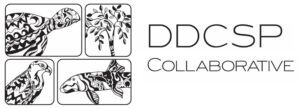DDCSP Collaborative

Service Area
United States-
On the Web
Website Facebook Twitter -
Contact this Project
The challenge:
Solving the complex and accelerating problems of habitat loss, climate change, threats to biodiversity, and other conservation challenges requires innovative and imaginative solutions. The probability of identifying and implementing creative solutions is greatly enhanced when a diverse workforce consisting of people from a broad range of backgrounds brings new ideas, perspectives, experiences, and knowledge to the table.
Furthermore, in an increasingly diverse society, disciplines that draw from a narrow ethnic and racial slice of the population are likely to be undervalued by society. This is reflected in a lower level of participation in voluntary conservation activities, membership in conservation organizations, and donations contributed toward conservation by people of color than for people from the white population. Given the changing demographics of the US and the environmental challenges we face, fostering expertise in and appreciation of conservation science across the demographic breadth of society may be key to long-term success of conservation programs.
What can be done?
To diversify the field of conservation, we must build capacity in a diverse cadre of college graduates by providing them with skills in biodiversity conservation, leadership, and breaking down barriers to diversity and inclusion while in college. We must also provide access to the field by strengthening their relationships with other scholars and alumni of our program and by helping them build strong professional networks.
How DDCSP Collaborative is meeting the challenge:
The DDCSP Collaborative is designed to increase diversity, equity, and inclusion in the field of biodiversity conservation, with a specific emphasis on the conservation of land, water, and wildlife.
As a Doris Duke Conservation Scholars Program, the DDCSP Collaborative is a highly competitive, two-year undergraduate experiential research program focused on preparing the next generation of diverse environmental conservation professionals. Scholars take part in applied field research projects, professional internships, mentoring, and form strong professional networks. Scholars learn a variety of field techniques and research and presentation skills. Students are also prepared to help increase diversity, equity, and inclusion in the field of conservation through coursework in communication, creative problem solving, leadership, and diversity, equity, and inclusion all while building important leadership and communication skills.
Over the next year, the DDCSP Collaborative will be transitioning to a new home, the Conservation Collaborative, and will soon be known as the Conservation Collaborative Scholars Program.




